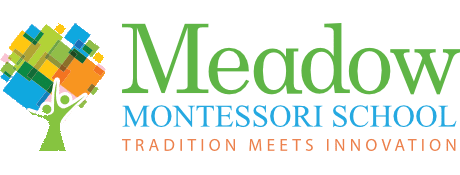Students at Meadow Montessori School are exploring a new avenue of learning. Our dual-language classroom, offering instruction in English and Spanish, is giving these children an opportunity that will have an impact throughout their lives. If you’re interested in information about the new classroom, please contact us at 281-232-4444.
A Second Language Is Good for the Mind
Questions naturally arise when considering teaching a second language to young children. Will this cause language confusion? Will my child experience a delay in language development? Will this have a negative effect on their learning?
Linguistic researchers at Cornell Language Acquisition Lab have found that the answer to all of these questions is a resounding, “No!” In fact, the researchers found that kids who learn a second language experience several cognitive advantages. A major positive is the ability to maintain attention to a task — a key concern for young children — despite outside distractions better than their single-language counterparts.
Advantages of Learning a Second Language Early
Introducing a second language early in a child’s life is faster and easier than learning it when they are older. Children’s brains are designed to absorb and process new information unconsciously. The brain systems devoted to language learning have a growth spurt from around ages six through 11, making this period the best time to introduce a second language.
Consider your child’s vocabulary. Because they use fewer words to communicate, they can adapt more quickly to a second language. As they grow and find that they need more words and skills to express themselves, they will have the foundation in two languages to do so more easily.
“More easily” does not mean that this isn’t a challenge. Young brains need to work hard to sort through the words and speech patterns of two languages. The work involved actually helps these students become more effective at problem-solving as they grow. Bilingual children have been shown to excel at planning, problem-solving, concentration, and multi-tasking beyond their single-language peers.
A Lifetime of Influence
Spanish is the most common non-English language spoken in the United States and is the native language of 13% of US residents. This number is on the rise. Spanish is one of the six official languages of the United Nations and the third most-used language in the media.
Children who become fluent in Spanish at a young age will have an advantage when applying to colleges and later when they are seeking employment. According to The Economist, learning Spanish now will add up to a significant monetary advantage later in the workplace. They will have opportunities well beyond what would be offered if they only spoke English.
Explore the Advantages
Are you interested in giving your child the developmental learning advantages of the Montessori method coupled with the lifetime effect of learning Spanish at an early age? Meadow Montessori School is proud to offer our students the best learning experience in the Richmond, TX, area. Call 281-232-4444 today for a tour. No podemos esperar para conocerte.
Fun Fact: 21 countries have Spanish as their official language!


Sorry, the comment form is closed at this time.